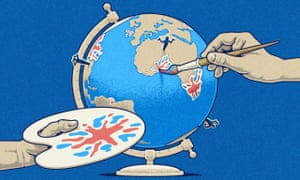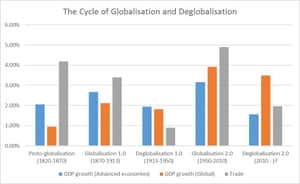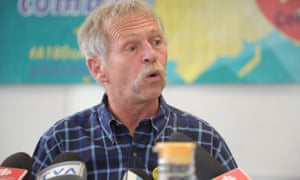My response to Shekhar Gupta's video
Dear Mr. Gupta
I believe your thesis on economic history is flawed when you argue that Japan, Korea, Taiwan and Singapore have grown because of economic freedoms i.e. I presume you mean free market practices. I have often heard you say that India too should follow free market practices to achieve similar heights. In the above process the elephant in the room i.e. how China rose with state intervention, has also been ignored.
Kindly permit me to state a few historical facts extracted from 'Bad Samaritans The Guilty Secrets of Rich Nations...' by Ha Joon Chang
1. When Robert Walpole became the British Prime Minister in 1721 he launched a Swadeshi* policy aimed to protect British manufacturing industries from foreign competition, subsidise them and encourage them to export. Tariffs on imported foreign manufactured goods were significantly raised while tariffs on raw materials were lowered. Regulation was introduced to control the quality of manufactured goods so that unscrupulous manufacturers could not damage the reputation of British products in foreign markets. Walpole’s protectionist policies remained in place for the next century, helping British manufacturing industries catch up with and then finally forge ahead of the counterparts on the Continent.By the end of the Napoleonic wars in 1815 British manufacturers were firmly established as the most efficient in the world and it was then that they started campaigning for free trade.
2. The US too followed similar protectionist policies, espoused by Alexander Hamilton, which included protective tariffs, import bans, subsidies, export ban on key raw materials, financial aid...until the end of the Second World War (WWII). It was only after WWII, with its industrial supremacy unchallenged, that the US started championing the cause of free trade. Even when it shifted to freer trade, the US government promoted key industries by another means; namely public funding of Research and Development (R&D). Without government funding for R&D the US would not have been able to maintain its technological lead over the rest of the world on key industries like computers, semiconductors, life sciences, the internet and aerospace.
3. In Japan the famous MITI (Ministry of International Trade and Industry) orchestrated an industrial development programme that has now become a legend. After WWII, imports were tightly controlled through government control of foreign exchange. Exports were promoted in order to maximize the supply of foreign currency needed to buy up better technology. This involved direct and indirect export subsidies as well as information and marketing help from JETRO the state’s trading agency.
4. Even Korea has not been an exception to this pattern. The Korean miracle was the result of a clever and pragmatic mixture of market incentives and state direction. The Korean government did not have blind faith in the free market either. While it took markets seriously, the Korean strategy recognized that they often need to be corrected through policy intervention.
5. Singapore has had free trade and relied heavily on foreign investment, but even so, it does not conform in other respects to the neo-liberal ideal. It used considerable subsidies to MNCs in industries it considered strategic. It also has one of the largest state owned enterprises which supplies housing and almost all land is owned by the government.
To conclude, I feel that Mr. Gupta’s advocacy of free markets is based on a fundamentally defective understanding of the forces driving globalisation and a distortion of history to fit the theory. Free markets and trade was often imposed on rather than chosen by weaker countries. Virtually all successful economies, developed and developing, got where they are through selective strategic integration with the world economy rather than unconditional global integration.
Regards
Girish Menon


